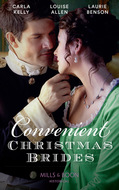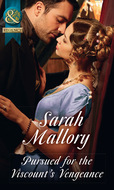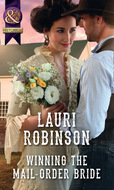Kitap dosya olarak indirilemez ancak uygulamamız üzerinden veya online olarak web sitemizden okunabilir.
Kitabı oku: «The Officer and the Lady»
Imogen stopped and turned to face him, a soft, warm glow lighting up her eyes.
Looking down at her eager expression, Beresford felt his heart seem to skip a number of beats, and it occurred to him that at this moment there was nothing in the world that he would not do to keep that ardent look on her face. He was then obliged to remind himself of the vow he had made less than twenty-four hours previously, and as he did so he felt a sudden lowering of spirits—for it was now becoming quite obvious to him that every minute he spent in Imogen’s company was going to place him in serious danger of breaking that vow, and it was absolutely imperative that he should not do so.
To become involved in a casual affair with Imogen Priestley was totally out of the question, and any suggestion of a more lasting attachment, highly compelling though that thought might be, was even more impossible to contemplate.
DOROTHY ELBURY
lives in a quiet English village in Lincolnshire, an ideal atmosphere for writing her historical novels. She and her husband have been married (it was love at first sight, of course!) for forty-five years, and they have three children and four grandchildren. Her hobbies include visiting museums and historic houses, and handicrafts of various kinds.
The Officer and the Lady
Dorothy Elbury

MILLS & BOON
Before you start reading, why not sign up?
Thank you for downloading this Mills & Boon book. If you want to hear about exclusive discounts, special offers and competitions, sign up to our email newsletter today!
Or simply visit
Mills & Boon emails are completely free to receive and you can unsubscribe at any time via the link in any email we send you.
Contents
Chapter One
Chapter Two
Chapter Three
Chapter Four
Chapter Five
Chapter Six
Chapter Seven
Chapter Eight
Chapter Nine
Chapter Ten
Chapter Eleven
Chapter Twelve
Chapter Thirteen
Chapter Fourteen
Chapter Fifteen
Chapter Sixteen
Chapter Seventeen
Chapter Eighteen
Chapter Nineteen
Chapter Twenty
Chapter Twenty-One
Chapter Twenty-Two
Chapter Twenty-Three
Chapter Twenty-Four
Chapter One
August 1816
A s the two carriages reached the brow of the hill, the driver of the first, having heard a sharp rap from within, brought his team swiftly to a halt and cocked his ear to await further instructions from his passengers.
‘Well, here it is, David,’ said Matt Beresford, as he lowered the window and, with a broad sweep of his hand, indicated to his companion the extent of his late father’s property. ‘Thornfield—I suppose you might call it my “ancestral home”—for what it is worth!’
David Seymour gave a wry smile. His friend’s sarcastic tone had not failed to register.
‘Still not really made up your mind, have you?’ he observed.
Beresford shrugged. ‘As I recollect, I hardly seem to have been given a great deal of choice in the matter.’
Leaning forward, he opened the door, leapt lightly out of the carriage and motioned to the driver. ‘Wait here for about ten minutes, then carry on—my guess is that you will find the house gates about half a mile further up the road.’
Turning to Seymour once more, he said, ‘I noticed a door in the wall further back—I have a mind to try and get into the park and see what sort of state it’s in. You go on and I will meet you at the front of the house.’
With a resigned sigh, his companion watched him striding back down the lane. He had been acquainted with Beresford for some nine years now, ever since they had both set sail for India under the aegis of Seymour’s father who had, at that time, been a Resident District Commissioner with the British East India Trading Company. With Colonel Seymour’s help and support both young men had carved out very successful careers for themselves within the company and might possibly have remained in Hyderabad for the foreseeable future had it not been for the urgent and totally unexpected summons that Beresford had received from his estranged father’s solicitor some six months earlier.
Over the years, Seymour had managed, partly from the occasional conversation with his friend, but mostly from local gossip, to glean a good deal of Beresford’s early history. He was aware that Matt’s father, Sir Matthew Beresford, who at that time had held the office of Governor of Madras, had been so racked with grief at the death in childbirth of his beloved young wife, that he had instantly rejected his newborn son, having chosen to lay the full blame for the unfortunate lady’s demise upon the infant’s innocent head.
Accompanied only by a returning Company junior and a hastily acquired wetnurse, the child had been bundled on to the first available East Indiaman to sail for the home country, where he had been abandoned into the care of his maternal grandparents. Although Sir Matthew had, through legal channels, arranged adequate financial provision for his son’s upkeep and education, these ageing relatives had been obliged, forthwith, to entrust their grandson’s welfare to the hands of a succession of nursery maids and colourless governesses. Consequently, the young Beresford might have led a cheerless and somewhat prosaic upbringing had not an acquaintance of his grandfather chanced to recommend the services of an excellent, if rather avant-garde, tutor, one Thomas Hopkirk.
In addition to making sure that his young pupil was furnished with a wide and varied education, this highly enlightened academic had taken it upon himself to see that the boy was equipped with all the necessary sporting skills that a gentleman of his station might be likely to require. The very fact that Beresford had straightway knuckled down and made such a success of his mandatory career in India was, without doubt, due mainly to Hopkirk’s years of devoted teaching.
‘But, did you never attempt to contact your father?’ Seymour had asked in amazement, when hearing his friend’s history for the first time.
‘My grandparents tried on several occasions to win him over,’ Beresford told him. ‘However, as he seemed bent on continuing to ignore all of our communications, Grandfather finally gave up trying.’
‘But, when you yourself were older?’
‘You may be sure I did,’ said Beresford, with an emphatic nod. ‘As soon as I had completed my time at Oxford and had gained my majority, I made it my business to seek him out but, since his solicitor refused to divulge his current address, this was not at all easy. However, I eventually managed to track him down to his club in St James’s and screwed up the courage to confront him.’
His bright blue eyes clouded over in remembrance of that fateful meeting. ‘At the time, I was desperate to join my college friends in the Peninsula and I petitioned him to use his influence to recommend me for a commission.’ He laughed, almost awkwardly. ‘I seem to recall I fancied myself as a lieutenant in the Rifle Brigade!’
‘Well, you always were a damned fine shot!’ laughed his friend, then his face at once grew serious. ‘But your father still refused to acknowledge you? After twenty-one years he must surely have recovered from his earlier resentment?’
Beresford shook his head. ‘Apparently not. Certainly, my turning up had the most curious effect upon him. He took one look at me, his face went as white as a sheet and he then became quite abusive—accusing me of downright effrontery and so on. I was somewhat taken aback by his manner but, seeing that as soon as I finished my time at Oxford, he had chosen to withdraw his financial support, I felt that I had no alternative but to persevere with my request. He then insisted that he had no contacts with the military—I later discovered that to be quite untrue, of course.’
‘But he did find you a position with the Company?’ persisted Seymour, finding his friend’s father’s attitude hard to fathom, always having had the benefit of a close and harmonious relationship with his own parent.
‘Yes, he did,’ admitted Beresford. ‘Although, that came about in a rather odd way, too. He had all but dismissed me— I had, in fact, turned to go—when he suddenly called me back and offered to fund my passage on the East Indiaman that was about to set sail for the sub-continent. He then called for some writing materials and straight away scribbled out the letter of introduction to your father—and the rest, of course, you know.’
Seymour nodded. ‘Sir Matthew was my father’s mentor when he joined the Company back in ’82—I heard he made a mint in his heyday. A regular “nabob”—or so I have been told.’
‘Pretty much consistent with the type of man he seems to have been,’ Beresford replied, his tone unemotional.
Seymour was chagrined. ‘Sorry, old man. I meant no insult—it was just a phrase they used at the time when one of the Company chaps got back home with a huge fortune—no disrespect to your sire.’
Beresford grinned at his friend, giving him a playful punch in the shoulder. ‘Forget it, David. We both know that most of our predecessors made their piles by underhand and far from scrupulous deals in the opium trade. I hold no brief for my father—I never even knew the man. Although, to be fair, it is thanks to him that I met you, and a truer and better friend a man would be hard pressed to come by.’
Since his father had made it clear that he intended to offer his son no further financial support, Beresford had reluctantly found himself more or less obliged to take up Sir Matthew’s offer, and had forthwith presented himself at the Company’s Head Office in Leadenhall Street, from where he was directed to David Seymour’s lodgings, just prior to that young man’s own embarkation to join his father.
Almost nine years had passed since that fateful day, during which time neither Seymour nor Beresford had had occasion to return to England. Seymour had never hankered after his homeland, as both of his parents were permanently domiciled in Mysore, and Beresford had had no reason to do so. His grandparents were no longer living and, as far as he was aware, he had no other relatives apart from his father, who had, in any event, ignored all of his early letters from India. It seemed that all communication between the two of them had ended with that abrupt meeting in St James’s and it was, therefore, with considerable surprise that, in the January of this present year, Matt Beresford had opened the letter from his father’s solicitor to be informed, somewhat bluntly, of Sir Matthew’s death. To his even greater astonishment the writer had then informed him that, due to an anomaly in the wording of his father’s will, there was the distinct possibility that, since he appeared to be Sir Matthew’s heir, he must return to England as soon as possible, in order to untangle the complications of his father’s bequests.
Beresford had been inclined to ignore the summons, but his friend Seymour had eventually persuaded him that they were long overdue a trip to their native land and, now that the war in Europe had ended, to be present at the prospective celebrations in London might prove to be quite exciting.
‘And just think of the scores of lovely young ladies we shall meet!’ Seymour had declared, his hazel eyes gleaming in anticipation. ‘The only females we come across here are either taken or well past it!’
‘Oh? I rather thought that you seemed to be doing pretty well with Mrs Ledger the last time I looked!’ observed his friend, laughing. ‘You were both certainly taking your time looking for her gloves in the shrubbery last week.’
‘Oh, Susan Ledger!’ shrugged Seymour carelessly. ‘I have moved on since then—matter of fact, I chanced upon a rather pretty little ayah in Strickland’s nursery on Saturday after the polo match—what about you?’
Beresford shook his head. ‘Had a bit of a fling with Lillian Ashton before she went off to marry old Bunter in Madras last month,’ he said briefly, ‘but you are quite right, women are pretty thin on the ground this year.’
‘And only the blessed monsoons to look forward to,’ Seymour reminded him. ‘Good time to get away, if you ask me—just for a few months, anyway. What do you say? You can sort out your pa’s legal tangles, whatever they are, and then we can have some fun in dear old London Town!’
Unfortunately, Sir Matthew’s legal tangles had turned out to be something of a nightmare since it appeared that, unbeknown to his son, he had remarried some nineteen years previously and had produced a second family, comprising a wife and two children. However, although it had clearly been his intention to leave them well provided for, not one of his bequests could be fulfilled until it was resolved which of his sons was the rightful heir.
When he had instructed his solicitor to draw up his will, he had bequeathed the bulk of his estate to his ‘son’, obviously intending that his property should go to the now sixteen-year-old Nicholas, having either conveniently dismissed the existence of his firstborn or, as Matt was inclined to suspect, had presumed that, being as fair-skinned as his late mother, the boy must surely have succumbed to the rigours of the unforgiving Asian climate.
When Beresford learned of his father’s duplicity, he had coldly instructed the solicitor to carry out what he felt must have been Sir Matthew’s true intentions. Through his own hard work and diligent application to duty, he himself had accumulated more than enough wealth to last him a lifetime and he wanted no further part in his father’s affairs.
‘Unfortunately, sir,’ Mr Robbins had sternly informed him, ‘due to the continuous lack of funding since your father’s death last year, the estate is now in a somewhat parlous condition and Lady Beresford who, if I might be so bold as to point out, is your stepmother, is, as such, entitled to expect your support!’
Further protestations had proved futile, with Mr Robbins constantly reminding Beresford of his duty to his family.
‘I will do my best to sort out the title at this end,’ he assured the exasperated Beresford, ‘but you really must go up to Lincolnshire and see Thornfield for yourself. The family has been without proper funds for almost a year now—it has taken me almost as long to establish your whereabouts. Your family is clearly in dire need of the help and guidance of someone who has had as much experience in land management as you have had, sir.’
‘But surely you could have released the female portions?’ retorted Beresford angrily. ‘And, if I relinquish any claim to this—Nicholas’s—inheritance, then surely they have some sort of estate manager who can deal with the other matters?’
‘Best go and see for yourself, sir,’ the solicitor advised him. ‘Then you may return home with a clear conscience.’
Chapter Two
B eresford approached the wooden door in Thornfield’s perimeter wall with slight trepidation. He was by no means a man of nervous disposition, but the idea of coming face to face with an entirely new and unwanted set of relatives—however tenuous their connection—was not one towards which he could bring himself to feel the slightest spark of enthusiasm.
To his surprise, he found the gate unlocked. He frowned as he entered the park, carefully securing the door behind him. This was certainly not good practice and, as he cast his eyes around the copse through which the path towards the house ran, he was quick to register a good many signs of neglect: fallen saplings, uncut brambles and a profusion of weeds, the extent of which threatened to overtake the path itself.
He walked on, dismally reminding himself that he might well have to use his own money to put these matters to rights, if they were to be attended to before winter set in, and his irritation grew as his mind dwelt on the vexing imposition with which he had been saddled.
As he rounded a bend in the path, he became aware of the sound of raised voices in the copse some short distance ahead. His curiosity raised, he began to tread more carefully and sidled quietly towards the clearing from where the altercation seemed to be emanating.
Peering through the bushes, he managed to make out the figures of a man and a young woman, apparently engaged in a heated argument. The man had the dark, almost swarthy look of a gypsy about him and seemed to be threatening the girl in some way. She had her back towards Beresford but, the minute he saw the man appearing to raise his fist at her, he cast aside the bushes and immediately leapt to her defence.
The man staggered back in astonishment at Beresford’s sudden arrival and, as Beresford’s hand reached out to grab his collar, one arm came up in self-defence and the other, holding a shotgun, swung wildly in Beresford’s direction.
‘Who the hell are you?’ he spluttered, ‘And what are you doing on private property?’
By this time he had his gun under control with both hands and aimed squarely at Beresford’s chest. His dark eyes glittered as he took in the interloper’s appearance, which, judging by the immaculate superfine breeches and made-to-measure jacket, was clearly not that of a tramp or vagabond. He hesitated, momentarily unsure of his ground until the sound of barely smothered laughter caused him to swing round angrily to confront the young woman behind him.
‘What’s so funny?’ he demanded. ‘You know this man?’
Unable to stifle her amusement, the girl, who had been watching the by-play between the two men with unconcealed interest, shook her head and delved into her pocket for a handkerchief to mop her streaming eyes.
‘It has to be Matthew Beresford,’ she choked, still trying to control her mirth. ‘Thornfield’s new master, Mr Wentworth—we were told he would be arriving shortly—and now, it seems, here he is!’
Wentworth’s eyes swivelled back to Beresford, who was presently engaged in removing the leaves and twigs that had attached themselves to his clothing during his headstrong dash.
‘You’re Matthew Beresford?’ he asked truculently. ‘How d’ye come to be up here in the copse then?’
‘I take it that you are a member of my staff, my good man,’ replied Beresford coldly, casually inspecting his cuffs. ‘I presume that you wish to keep your position, whatever it is?’
The man blanched as the girl quickly interposed on his behalf. ‘This is Philip Wentworth, sir—he is—has been in charge of the estate since Sir Matthew died.’
Beresford gave her a brief glance; a strikingly pretty girl, with soft brown hair and wide grey eyes, wearing a faded blue cotton print gown, a rather battered chipstraw bonnet and carrying what looked to be a basket of wild strawberries. Probably one of the upper maids or some such. He concluded that he had probably interrupted a lovers’ quarrel.
‘And you are?’ he queried.
Her amusement disappeared in an instant. A slight flush crept into her cheeks and she straightened her shoulders. She recognised a put-down when she heard one. ‘I am Imogen Priestley,’ she replied in an even voice, meeting his gaze squarely.
Beresford merely nodded and proceeded to walk back to the path.
‘Perhaps you would see that the wall gate is kept locked in future,’ he threw at the now sullen Wentworth as he passed him.
A slight exclamation from the girl halted him and he turned to find her at his elbow.
‘I am afraid that was me,’ she blurted out, her hand to her mouth. ‘I went across the lane to see if there were more berries under the hedge and—I must have forgotten to lock the gate when I came back. Wentworth is not to blame—on this occasion.’
Intrigued, Beresford studied her more carefully. Something about her bearing, or perhaps it was the lilting timbre of her voice, caused him to reappraise his first impression of her. Not a servant, certainly, perhaps a governess?
‘You are returning to the house?’ he asked.
She nodded. ‘I would be happy to show you the way, although, to be perfectly truthful, you can hardly get lost as the path goes straight down to the front driveway.’
He smiled. ‘I had an idea that it might.’
Imogen, hurrying to keep pace with Beresford’s long strides, found a great deal to admire in his appearance as they wended their way through the copse together. Tall and undeniably handsome, she could see that his complexion, even after the long passage home, still held the healthy glow of the fading remnants of the tropical suntan that he had acquired from his years on the Indian continent, emphasising the startling blueness of his eyes and the guinea-gold brightness of his hair.
Slightly discomfited by the searching glances that were being cast in his direction, Beresford walked on in silence for a few moments then, ‘How did you guess who I am?’ he asked curiously. ‘Wentworth was right in his assumption that I could have been anyone.’
Imogen laughed. ‘Not so, sir. I have seen your mother’s portrait. You are as like as a man can be to a woman—same golden locks, same blue eyes…’ She stopped in confusion as Beresford gripped her arm and swung her towards him.
‘My mother’s portrait?’ he demanded. ‘Where have you seen my mother’s portrait?’
She tried to pull away. ‘You are hurting me, sir,’ she protested.
He loosened his grip immediately, but kept hold of her nevertheless. ‘I beg your pardon. It was not my intention to startle you. You say you have seen a portrait of my mother?’
‘Well, yes,’ she averred, ‘although it was some years ago, when I was younger. It used to be kept in one of the attics where we were wont to play hide-and-seek and I often wondered who the lady could be, but when I asked about it Sir Matthew got very angry and forbade us all to go up there again, so it could well have been removed by now.’
She stared pointedly at his hand. ‘You may let go of my arm now, if you please, sir.’
He dropped his hand as though it had been stung and pondered over her words. Then a thought struck him.
‘You say you have lived at Thornfield since you were a child?’
‘All my life, practically.’
At the questioning look on his face she smiled. ‘Lady Beresford took me in when I was six years old,’ she said patiently. ‘Jessica was barely two at the time…’
‘Jessica?’
‘Your half-sister.’ She looked at him quizzically for a moment. ‘You do not seem to know a great deal about us, if I may say so.’
‘Nothing at all, as it happens,’ he said bluntly. ‘I was totally unaware of your presence until two weeks ago. You have the upper hand here, it seems.’
‘How do you mean?’
He thrust his hands into his pockets and strode purposefully on.
‘Well, you all presumably know everything there is to know about me, I dare say.’
She hurried after him. ‘No such thing!’ she protested. ‘None of us were even aware of your existence until a few months ago. Lady Beresford has barely recovered from the shock. Apparently, Mr Robbins was the only one in whom Sir Matthew confided and even he thought that you might well be—oh, dear, I did not mean to say that!’
Beresford let out a hollow laugh. ‘I have long suspected that my father hoped I was—dead, that is. I am almost certain that was his intention when he sent me out to India. Robbins intimated that it had taken several months to track me down. Personally, I wish he had not gone to so much trouble!’
‘Oh, no! Please do not say such things! I, for one, am very glad that he found you!’ came her incredulous rejoinder.
Intrigued at her somewhat vehement response, he swivelled his eyes in her direction and was startled to register the very animated expression that had suddenly appeared on her face. What was even more curious, however, was that her eyes, which he had previously thought to be an indeterminate shade of grey, now appeared to be a much more vibrant colour and streaked with the most amazing flashes of silver. For a moment he stared down at her lovely features in a fascinated confusion then, hurriedly collecting himself, he blinked and shook his head.
‘Well, now that I am here, I will certainly endeavour to do what I can to sort out the mess Sir Matthew left you in,’ he heard himself saying and then cursed himself for uttering such an insensitive remark.
Imogen, however, seemed to have taken no offence at either his protracted stare or his lack of tact. ‘Yes, I was perfectly certain that you would,’ she acknowledged. ‘As soon as I set eyes on you I could see that you were not a man to be trifled with and I must tell you that I’ve been having such problems! Wentworth has been proving most uncooperative and the books are in such a state. It will be a relief to be able to go through them properly at last!’
Beresford frowned. ‘I think you may leave all that sort of thing safely in my hands from now on,’ he said. ‘Is that what you and Wentworth were arguing about back there?’
She hesitated. ‘Well—no—not exactly. It was quite another matter—it will keep—anyway, here we are at the house at last!’
She sounded relieved and Beresford found himself wondering if his first supposition about her and Wentworth had been correct after all and was startled to find that the thought of such a liaison was quite distasteful to him.
The wooded pathway had taken them down to the gravelled driveway at the front of the house and, as he got his first glimpse of the building, Beresford felt bound to concede that Thornfield was certainly a fine-looking mansion house, its graceful neoclassical architecture highly reminiscent of the Senior Resident’s house back home in Calcutta. Standing three storeys high, with more than twenty elegantly pedimented windows visible on its east-facing cream-stuccoed Palladian façade alone, it boasted a columned porte-cochère, which not only covered the impressive-looking flight of steps that led up to the front door, but a goodly portion of the front drive as well.
Motioning him in the direction of the steps, Imogen made for the archway that led to the north wing of the house. ‘I need to get these strawberries to Cook.’ She smiled. ‘Otherwise we shall have no dessert with our dinner!’ And with that, she whisked away through the archway.
Looking slightly bemused, Beresford watched her until she vanished from his sight then, suddenly conscious of the fact that the two carriages were already standing within the porte-cochère and that his friend Seymour seemed to be having some difficulty directing the disparate group of rather hapless-looking servants in the business of unloading the baggage, he groaned and hurried forward to take control of the situation. Having been used to the well-run, orderly life of a hill-station for so long, it seemed to him that the entire household looked to be in a total shambles.
When all of the trunks and boxes had finally been carried into the rather dust-ridden but magnificently appointed great hall, he looked about him, expecting to see some sort of welcoming (or otherwise) committee, but, apart from one elderly manservant who was shuffling uncomfortably at his elbow, there was no one else in sight.
‘Remarkably shy lot, it seems, your new family,’ grinned Seymour, unbuttoning his topcoat and handing it, along with his hat and gloves, to the servant.
Beresford frowned at him and looked down at the man.
‘Where might I find Lady Beresford?’ he enquired. ‘She will be expecting me, I imagine. Kindly take me to her at once.’
The old man shook his head. ‘Her ladyship will be indisposed, sir—that is to say, she never rises before noon and it is more than my life’s worth to have Mamselle disturb her before then.’
Beresford’s brows knitted together in exasperation and he bit back an angry retort, cautioning himself that it would not do to lose his temper at this stage. Taking a deep breath, he walked towards one of the rooms that led out of the hall, which, judging from the shelves of books that he had glimpsed through its open doorway, appeared to be either the library or an office of some sort.
‘Very well, my man,’ he said curtly. ‘You may bring me a decanter of brandy. Mr Seymour and I will take a little refreshment while we wait upon her ladyship’s convenience.’
‘Yes, sir. I will see what I can do, sir.’ The man bowed and scurried away.
The room was, in fact, a large and very well-stocked library, but, to Beresford’s dismay, it was dominated by a huge portrait of the late Sir Matthew that hung above the fireplace. Wearing the most forbidding expression, his late father seemed to be glowering down at them with arrant disapproval. Taking one horrified look at it, Beresford shuddered and swung one of the leather armchairs round to face away from the fireplace before taking his seat.
‘What an extraordinary welcome!’ commented Seymour, following his friend’s example. ‘It certainly looks as though you are going to have your work cut out here, Matt—not a friendly face in the place, as far as I can see.’
For no apparent reason, the image of a pair of laughing grey eyes shot into Beresford’s mind. He shrugged it off, saying, ‘We could certainly do with old Jimi and his houseboys here, David. A more slapdash set of servants I have yet to come across. It is clear that they need to be taken in hand—and so few of them—did you notice? One would have thought, in such a large establishment—’
His comments were interrupted by the arrival of the elderly manservant, who entered the room bearing a silver tray upon which rested a half-empty decanter and a pair of glasses.
‘Best I could do, sir,’ panted the man, laying down his burden on the drum table at Beresford’s elbow. ‘Mr Wentworth keeps the keys to the cellar, sir, and I cannot seem to locate him just at the moment.’
Ücretsiz ön izlemeyi tamamladınız.








